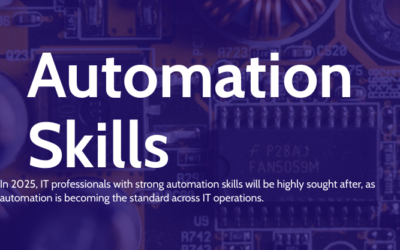Automate Your Business Processes with Robotic Process Automation (RPA)
Robotic Process Automation (RPA) is a rapidly growing field that has the potential to revolutionize the way businesses operate. RPA is a software technology that allows companies to automate repetitive tasks, freeing up valuable time and resources for more complex tasks. In this article, we will explore what RPA is, how it works, and its potential benefits.
What is RPA?
Robotic Process Automation (RPA) refers to the use of software robots or bots to automate business processes. These bots are programmed to perform repetitive tasks that are typically done by humans, such as data entry, invoice processing, and customer service. RPA software is designed to mimic the actions of a human worker, but with much greater speed and accuracy.
Phil Fersht, founder and lead analyst at HFS Research, coined the term RPA in 2012. Initially, the technology progressed slowly, but it gained immense popularity around 2018 as companies began to undergo digital transformation and the capabilities of RPA platforms improved significantly.
How does RPA work?
RPA software is typically deployed in a virtual environment, such as a cloud-based platform. The software is programmed to interact with other applications and systems, using APIs or user interfaces. The bots are configured to follow a set of rules or instructions, which dictate the tasks they should perform.
For example, an RPA bot could be programmed to read data from a spreadsheet, process the information, and then input the results into another system. The bot could be configured to perform this task at a set time each day, or triggered by a specific event, such as the receipt of an email.
What are the benefits of RPA?
RPA offers a wide range of benefits for businesses, including:
- Increased Efficiency: By automating repetitive tasks, RPA frees up valuable time and resources for more complex tasks, ultimately increasing overall efficiency.
- Improved Accuracy: Unlike humans, bots do not make mistakes or get tired, making them more accurate and reliable for repetitive tasks.
- Cost Savings: By automating tasks, businesses can reduce the costs associated with hiring and training human workers.
- Scalability: RPA bots can be easily scaled up or down, depending on the needs of the business.
- Enhanced Customer Experience: By automating customer service tasks, such as responding to inquiries or processing orders, businesses can improve the overall customer experience.
What are some common use cases for RPA?
RPA can be applied to a wide range of business processes. Some common use cases for RPA include:
- Customer Service: RPA bots can be programmed to respond to customer inquiries, process orders, and handle other customer service tasks.
- Finance and Accounting: RPA can be used to automate invoice processing, payment processing, and other financial tasks.
- Human Resources: RPA can be used to automate tasks such as resume screening, candidate tracking, and employee onboarding.
- Supply Chain Management: RPA can be used to automate tasks such as order tracking, inventory management, and logistics.
What are the limitations of RPA?
While RPA offers many benefits, there are some limitations to consider. For example, RPA is best suited for tasks that are highly repetitive and rule-based. Tasks that require creativity or human judgment may not be suitable for automation.
Additionally, RPA requires significant investment in terms of time and resources to set up and maintain. It is important to carefully evaluate the potential benefits and costs before implementing an RPA solution.
Is RPA Good For Business?
RPA is a powerful technology that has the potential to transform the way businesses operate. By automating repetitive tasks, RPA can increase efficiency, improve accuracy, and reduce costs. While there are limitations to consider, RPA offers a wide range of potential benefits for businesses across a variety of industries.




